
Cabs are an institution in Denmark.
Okay, that might be an exaggeration. They are way too expensive to be a common form of transportation. Mostly, everyone travels by bike, bus, the subway train or Metro.
Did I mention that taxis are way too expensive?
Yet somehow within my first 6 months of living in Denmark, when I was caught at a nightclub at 5 am, too drunk to bike the 8 miles home to Hellerup, and a safe and hyggelig Mercedez Benz taxi escorted me to my doorsteps, I fell in love with taxis.
All taxis in Denmark are Mercedez Benz. With leather interior, and automatic shifting. I think it’s the law.

I’ve established a taxi budget. When I was living in LA and cultivating an expensive pinot noir hobby, I had a wine budget. In my busy “state government” political days, working for Gov. Schwarzenegger, I had an ample Starbuck’s budget.
Today, in Copenhagen, I’ve abandoned Starbucks (because we don’t have it here). Wine, I get in ample supply at work, oddly enough. But the savings I accumulate from not buying pinots and lattes help fortify my taxi budget.
There are many reasons who I love to hoof it by taxi.

Mostly it’s because I then don’t have to bike.
You see, I used to be a skillful and talented bike rider. I raced bikes. I trained on the bike saddle for seven hours every Saturday, without fail, for many mnany years.
When I biked for exercise, I had endless road space to roam. There are no other bikers on the road in California, so drivers give you a wide berth.
But I’ve grown tired of biking. My butt is sore.
Danes are impressive bike handlers, mind you. They’ve been riding bikes since they were 3-and-a-half. The traffic in the bike lane is littered with an aggressive, "take-no-prisoners" style of riding that leaves newbie’s like myself (who are not used to this thing called “biking for transportation”) freaked out.
-----
Ten months into my stay in Denmark, I took a bad spill on the bike after an ill-timed decision to make a right turn onto the sidewalk curb, in the rain, so that I could pop into 7-11 and buy a Rittersport. My rear wheel slipped and the full force of my body and bike went down on my right shoulder. My shoulder bone splintered in two pieces – a breakage that went undiagnosed by the Danish medical system for 2 months.

It took me a while to get back on my horse. The whole event was a debacle. In moments of rage and weakness, I blamed my stupid Dutch bike for the accident; I blamed my lousy doctors for not ordering x-rays and sending me home with 2 Tylenol and instructions to ‘go away.’ I blamed the rainy Danish summer for making me fall. I blamed the Danes who stared at me on the ground, and pedaled away, embarrassed. Mostly, I blamed myself and my lard-ass tendency to stop for late night nougats.
After healing, I retired my zippy Dutch racing-bike in favor of a snappy, pink Danish city-bike. I like my pink city-bike for short trips around town. I always wear a helmet – I wasn’t the day I crashed. I shudder to think if it had been my skull that had cracked.
I ride, but I don’t really enjoy it. You often see on the evening news stories about cycling Danish girls getting crunched under right-turning trucks at intersections. The truck drivers, “Never saw ’em coming.” And I don’t like riding my bike in the snow. Two feet of snow on the ground won’t stop the fearless Danes from plowing through it on their bikes. They have places to go, groceries to fetch, kids to drop off at day-care.
Last winter, I suffered a bad bout with pneumonia and went through a few rounds of hard core antibiotics, augmented by opium-laced cough syrup. Even when I was healing, I was still sick. But I was bored staying at home and dying to get back to work, so I laced up my furry winter boots, put on the thickest, furry parka I own, hopped on my pink bike and pedaled to work in two feet of snow; with pneumonia, in minus-10 degrees weather. Icicles hung from my nose as I shivered into the office. And I only live 7 minutes from my work.
When I told my mother that I was biking to work, in the snow, with pneumonia, she was aghast.
“Cammy, you must take a taxi!”
I told Bastian and he laughed.
“We live 10 seconds from your work; you’re not taking a taxi!”
I didn’t listen to him. For a few weeks, while my pneumatic cough still lingered, I took at taxi to the office. I told no one at my job.
My mother was proud.
And I got to know many lovely Danish taxi drivers.
Which leads me to the third and final reason why I love taking taxis. The most important reason of all: most of the drivers are foreigners, like me.
-----
I enter a cab and breathe a sigh of relief. They have accents when speaking Danish, like I do. They are chatty. They come from Serbia and Pakistan and Zimbabwe. They want to know where I’m from. I’ve met lawyers, bodybuilders, chefs and teachers. Most of them have gigs on the side.
It’s amazing how much you can get to know a person over an 18-minute car ride across town. Usually, even on a tight schedule, I don’t mind sitting in traffic in a taxi. I met a Swedish bloke named Klaus, who was a bodybuilder and said his biggest hero in life was Arnold Schwarzenegger. I let him do the talking that ride; didn’t mention that I knew him.
The most fascinating conversation I’ve ever had in a taxi took place about a month ago. I was headed to my doctor’s office where he was going to run a few tests, so I justified not biking to the appointment, because I was going to the doctor. My taxi driver was black, and he was native at Danish. He picked up on my American accent and told me with a fair amount of pride, that his dad was American, and his mom was Danish.
He added that he had lived in Denmark most of his life.
“I have much more Danishness in me, than anything else.”
I seized on his words. Or one word, in particular. So I asked him to clarify.
“So what does that mean? To be Danish, and have ‘the Danishness?”’
He smiled, gave a sheepish laugh.
“That’s a good question. I wasn’t expecting it.”
He couldn’t find an answer he was happy with, so he started asking the questions.
“Do you like living in Denmark?” he asked.
“Sure.”
“What is the hardest part about living in Denmark?”
“The fact that there’s this list describing what Danishness is. And I’ll never qualify.”
We went on and on before he pulled up to the medical building in Christianshavn. I didn’t want to get out of the car, our discussion was that riveting.
He probed further before I exited the taxi, and I’ll never forget his question as long as I live.
“If you could tell us – the Danes – one thing that we could work on, what would it be?”
A question like that would normally throw a person off, but I was on a roll that day and had an answer before he’d finished formulating the question.
Here is what I told my new taxi-driving friend.
To all the Danish people out there, I would say this: "To the fullest extent possible, open your mind. Deep in the Danish core, this seems difficult for some people. Foreigners can sense this. It makes life harder. And sadder. My biggest gripe about living in Denmark is how there's this prescribed list of "Danishness" and unless you're born and raised in the country, you have no possibility of qualifying. You see, we don't have the Danishness, try as we might. We may learn Danish, we may achieve 'full integration' but as long as there's this list of what it means to be Danish that is so exclusionary, you're going to have struggling foreigners in your country. We’d rather fit in, but we don’t know how."
-----
I believe Danishness is like a box. It has thick borders and sharp edges, and can only carry a set amount of weight. It buckles under the pressure of new or evolving concepts, ideas or descriptions, skintones and cultures. You’re either in the box, or you’re out, but don’t ever think of changing what goes in or out. It’s already been decided.
I remember Governor Schwarzenegger responding, when asked to look at government agencies more creatively, “I don’t want to think outside the box. I want to blow up the box.”
I do too.
For Danes to help immigrants and expats in Denmark, first they have to help themselves. They need to see Danishness as a work in progress, subject to change and evolution. Hopefully the evolution is for the better.
Thank you for having me, Denmark, and for asking me these delicious questions.
Next month's blog: what can us foreigners do for you, Denmark?

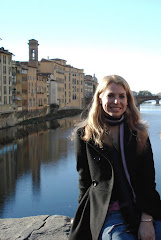



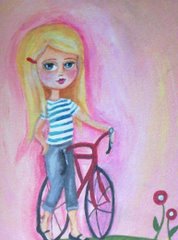

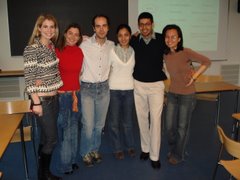


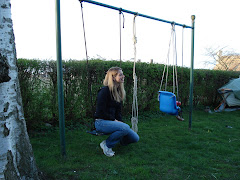
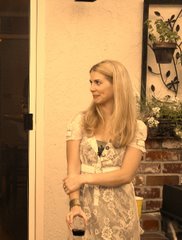


No comments:
Post a Comment